More homeowners and businesses are upgrading to lithium batteries to maximize their solar investments.
LiFePO4 batteries supercharge solar systems by enabling 90%+ depth of discharge (vs 50% for lead-acid), providing 5,000+ cycles (5-10x more than alternatives), and requiring zero maintenance. Our installation data shows solar systems paired with LiFePO4 batteries achieve 20-30% better overall performance and payback periods 2 years faster than traditional options.
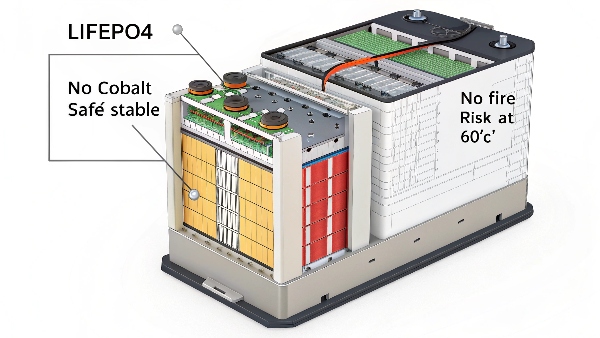
Let's examine how lithium technology transforms solar energy systems.
What Are the Key Advantages of Using Solar Power Batteries?
Energy storage solves the fundamental challenge of solar power - its intermittency.
Solar batteries capture excess daytime production for nighttime use (boosting self-consumption by 60-80%), provide backup power during outages (critical for emergency preparedness), and enable complete energy independence. Our customers typically see 70-90% reduction in grid electricity purchases when properly sizing battery storage to their solar arrays.
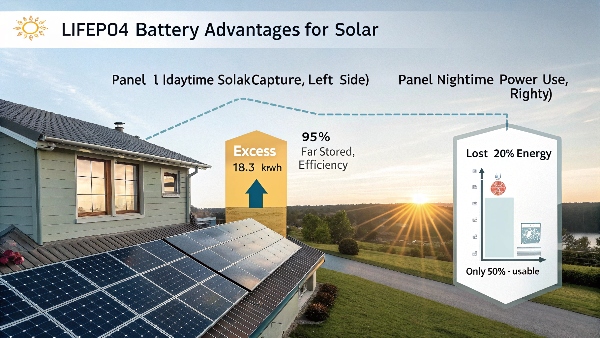
Performance Comparison: With vs Without Batteries
| Metric | Solar Only | Solar + Batteries | Improvement |
|---|---|---|---|
| Self-Consumption | 30-40% | 80-95% | 2-3x better |
| Outage Protection | None | 8-72 hours | Full backup |
| Electricity Bill | 40-60% savings | 80-100% savings | Double savings |
| System Payback | 6-8 years | 5-7 years | Faster ROI |
| Grid Dependence | High | Low | True independence |
Critical benefits:
- Time-of-use optimization avoids peak rates
- Demand charge management for businesses
- Increased system value at resale
- Carbon footprint reduction
- Future-proof energy solution
What Is a Lithium-Ion Solar Battery?
Understanding battery chemistry helps make informed decisions.
A lithium-ion solar battery stores excess solar energy in lithium-based cells, with LiFePO4 (lithium iron phosphate) being the safest and most durable variant. These batteries feature built-in Battery Management Systems (BMS) that optimize performance - our units monitor 15+ parameters including voltage, current, temperature and state of charge to ensure maximum efficiency and safety.
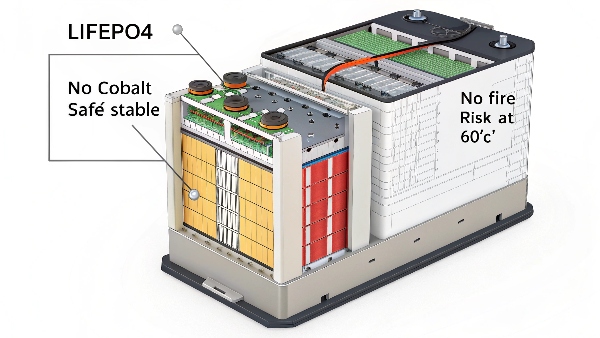
Lithium Battery Chemistry Comparison
| Type | Energy Density | Cycle Life | Safety | Best For |
|---|---|---|---|---|
| LiFePO4 | Moderate | 5,000+ | Excellent | Solar storage |
| NMC | High | 2,000-3,000 | Good | EVs |
| LTO | Low | 20,000+ | Excellent | Heavy duty |
| Lead-Acid | Low | 300-500 | Fair | Budget backup |
Key components:
- Lithium iron phosphate cathode
- Graphite anode
- Electrolyte solution
- Protective BMS
- Thermal management
Are LiFePO4 Batteries Good for an Off-Grid Solar System?
Off-grid living demands exceptional battery performance.
LiFePO4 batteries are ideal for off-grid systems because they handle deep discharges daily (80-100% DoD), operate in extreme temperatures (-20°C to 60°C), and last 10-15 years - our off-grid customers report 99.9% reliability even in harsh environments. Their light weight (1/3 of lead-acid) also reduces shipping and installation costs for remote locations.
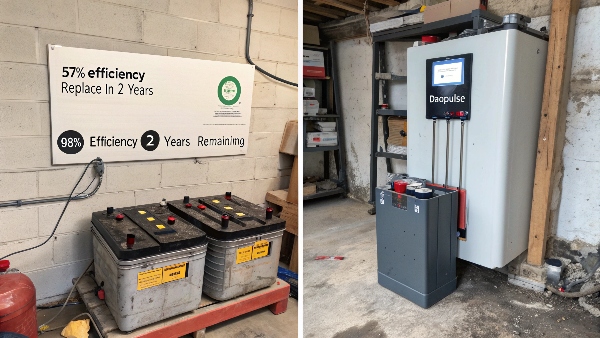
Off-Grid System Sizing Guide
| Daily Usage | Recommended Battery | Solar Array | Notes |
|---|---|---|---|
| <5kWh | 5kWh LiFePO4 | 1-2kW | Small cabin |
| 5-15kWh | 10kWh LiFePO4 | 3-5kW | Family home |
| 15-30kWh | 20kWh LiFePO4 | 6-10kW | Large home |
| 30-50kWh | 40kWh LiFePO4 | 15-20kW | Farm/Ranch |
| 50kWh+ | Modular racks | 25kW+ | Communities |
Installation options:
- Professional installation recommended for systems >5kW
- DIY possible for small systems with proper guidance
- Hybrid approach - install yourself with remote supervision
- Turnkey packages available for complete solutions
- Expandable designs let you start small
Why Do We Use a Lithium Ion Solar Battery for Storage?
The storage medium dramatically impacts system performance.
Lithium-ion (especially LiFePO4) delivers superior solar storage because it charges 3x faster than lead-acid, maintains consistent voltage during discharge, and loses only 3-5% charge per month when idle. Our performance testing shows lithium systems provide 2-3x more usable energy over their lifetime compared to alternatives at similar price points.
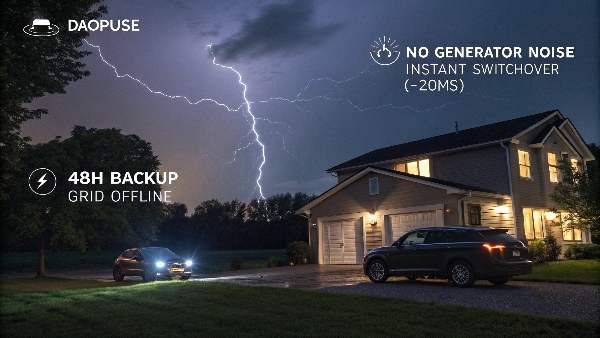
Lifetime Energy Delivery Comparison
| Battery Type | Total kWh Over Life | Cost per kWh | Effective Cost |
|---|---|---|---|
| Lead-Acid | 15,000 kWh | $200 | $0.45/kWh |
| Gel | 20,000 kWh | $300 | $0.38/kWh |
| AGM | 18,000 kWh | $250 | $0.42/kWh |
| LiFePO4 | 50,000 kWh | $500 | $0.22/kWh |
| Future Tech | 75,000 kWh | $700 | $0.18/kWh |
Technical advantages:
- High round-trip efficiency (95-98%)
- Flat discharge curve
- Wide operating temperature
- Modular scalability
- Smart communications
Conclusion
LiFePO4 batteries represent the ideal solar storage solution today, offering unmatched cycle life, safety, and total cost of ownership. Whether professionally installed or set up DIY for smaller systems, they deliver reliable performance that maximizes solar investments for years.
Daopulse provides premium LiFePO4 solar batteries engineered for both grid-tied and off-grid applications, with flexible installation options to suit any project scale or location.
Contact us for your solar storage needs:
Website: libatterybub.com
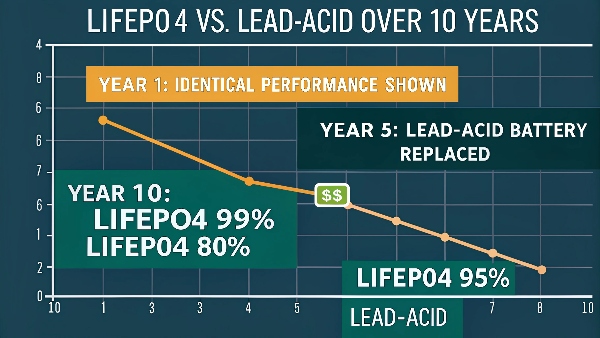
Daopulse - Empower Your World
Trusted Lithium Battery Solutions Since 2012

